#Coda
Reuters Explains Why The Miles Bankruptcy Is Relevant To Other EV Bankruptcies
Yesterday, battery acolytes who hate to see stories of EV makers going bankrupt complained about a TTAC story of another EV maker going bankrupt. They said the story was unfair, because Miles Electric made electric essential services vehicles, used for parking enforcement and the like, whereas bankrupt EV makers such as Coda tried to sell real cars,so where’s the connection?
Our story actually went to great pains trying to explain this promising niche, in an attempt to say “well, if it doesn’t work here, where will it?”
Wire services such as Reuters are less subtle.
Electric Car Maker Coda Goes Bankrupt
Electric car startup Coda is the latest in a series of greenm dreams to go down the drain – and it won’t be the last. Coda filed for Chapter 11 bankruptcy protection today, writes Reuters, “after selling just 100 of its all-electric sedans, another example of battery-powered vehicles’ failure to break into the mass market.”
Dead LEAFs and GE Chargers
The GE Wattstation killed my Leaf! That’s the story being reported by the New York Times as well as PlugInCars.com. As the tale goes, 11 Leaf owners have had their chargers “damaged” while charging with GE’s Wattstation home charging station. The relative significance of only 11 failures aside, the Nissan Dealer in San Pablo, CA confirmed to PlugInCars.com that Nissan North America has notified dealers of a potential problem with the Leaf and the GE home charging station. TTAC contacted Hilltop Nissan and they have yet to return our calls. Rather than just parroting back the usual news reports we dug deep. We contacted GE and Nissan, consulted some professional electrical engineers and read though hundred of pages of boring SAE documents. Click past the jump to learn more about EV charging than you ever wanted to know.
Coda Withdraws DOE Loan Request Worth $334 Million
Coda Automotive withdrew a Department of Energy loan application after two years of waiting. The $334 million loan was supposed to have gone towards establishing an assembly plant in Columbus, Ohio, but for now, production will continue in China.
Coda Teams Up With Great Wall To Build "Affordable" EVs
Coda Automotive, a Southern California start-up that assembles EVs with Chinese components, announced at today’s Beijing Auto Show that it would partner with the Chinese OEM Great Wall to develop a new, lower-cost EV. Says Coda CEO Phil Murtaugh (who you might remember as a key character in American Wheels, Chinese Roads) explains in a press release
First Coda Electric Sedan Ready to Ship
Lost in all the bad news from Fisker this week was the announcement that on Monday morning, the first electric sedan from CODA was driven off the company’s assembly line in Benicia, California and that the CODA car is now for sale, after considerable delay.
LA Auto Show: Coda Electric Sedan
Chinese Cars? CODA Wants To Be First
For years. American and Chinese companies have talked about bringing Chinese cars to America. So far, a lot of talk, little action. Even perennial announcer BYD has not progressed beyond the test phase. Santa Monica’s CODA wants to be the first one. Honestly now.
Coda EV Launch Delayed
EV Startup CODA Loses CEO
When is it a good time for a CEO to step down from an automotive company? This year we’ve already learned that ditching mere months before a major IPO was not a great move for GM CEO Ed Whitacre. But that surprise drop-out may just have been topped by CODA Automotive’s Kevin Czinger, who just resigned a month before his firm starts sales of its very first vehicle. The firm is in the midst of its pre-sales marketing, and is also currently pursuing $125m in financing from Morgan Stanley and others, making this a highly unusual time for a CEO to leave. Czinger, a Goldman Sachs alum, was crucial in bringing investments to CODA from other Goldman alums, including former Treasury boss Hank Paulson and John Bryson. Czinger will stay on as an adviser to the firm, as co-chairman Steve Heller will take over as interim CEO and COO. Earlier this year, Czinger called the CEO position his “dream job” (see video above).
CODA EV: $44,900 For An Electrified Hafei Saibao
As with most EVs, we knew about the CODA EV for a long time before a price was ever trotted out (the car was first mooted as the Miles XS500, and was scheduled for a 2009 launch before reality struck). And even before we knew the price, we reckoned that a Chinese-built sedan with Chinese battery cells thrown into it in Southern California would face its fair share of challenges. Now that the CODA EV has been priced at $44,900 (full specs here), we’re certain of it. Of course, Federal tax breaks bring the CODA down to $37,400, and a further California incentive could bring it as low as $32,400, or about $400 less than a Nissan Leaf… before tax breaks. Why would anyone pay $12,000 more for a Chinese fly-by-night when they could have a Nissan? CODA CEO Kevin Czinger tells Automotive News [sub] that
Price is not a decisive factor in the sale of electric cars. I think the 40 percent additional range, and 40 percent additional battery energy with all-season thermal management, is the decisive factorUnfortunately, his basic premise is wrong. A Financial Times [sub]/Neilsen poll shows that three quarters of American consumers would buy an EV, but that 65 percent would only buy one if it cost the same as a gas car. Meanwhile, $45k still buys a lot of gas-powered car, and most major OEMs will have EVs on the market soon. We give CODA about two years .Quote Of The Day: Defining Your Market Edition
The core consumers would be interested in technology and kind of early adopters
Coda Automotive senior VP for sales and distribution Mike Jackson (yes, the former GM marketing whiz) describes the market for his firm’s forthcoming electric car. So what is Jackson’s “kind-of-early-adopter” Californian consumer looking to get out of the Coda? A redesigned Mitsubishi platform, built and bodied in China for one thing. Chinese lithium-ion batteries delivering “90-120” miles of range, and guaranteed for eight years or 100k miles (3 years, or 36k miles for everything else) for another. 134 HP and 221 lb-ft, good for a top speed of 80 MPH. An 8-inch navigation screen with real-time traffic updates. And for you, they’ll throw in 17-inch alloy wheels. But the Coda EV’s most striking feature (at least in terms of appealing to tech-oriented Californians) is best summed up in the measured prose of AutoWeek
It has fairly bland, universal styling and is roughly the size of a Chevrolet Cobalt.
Holy unfortunate comparisons, Batman!
Coda Automotive: The Epitome Of All-American Innovation (Made In China)
Coda Automotive may not be claiming to have paid back the US government, but this video [via greencarreports] sure is one of the more misleading spots we’ve seen in a while. The term “all-American innovation” probably does great with focus groups, but it’s hardly an accurate description for a rolling-chassis Chinese sedan with some Chinese-made (unless the DOE gives Coda a loan for US cell manufacturing) lithium-ion cells bunged into it somewhere in California. Likewise, the fact that internal combustion engines operate at relatively low efficiency is fascinating, but it’s hardly relevant to potential customers. Especially considering this Coda EV is likely to cost about $45k before tax breaks. At that price point, a Chinese-market sedan should run at 110 percent efficiency, and be powered by melted-down AMG tires. And its makers should still have the decency to admit that, like so much in life, we’re entirely dependent on the Chinese to actually build the damn thing.
EV Startup Coda Snags $58m Investment
On the strength of Coda Automotive’s plan to launch a $45,000 EV conversion of a Chinese Hafei sedan, our coverage of the EV startup (formed from the ashes of Miles Electric Vehicles) has pretty much been limited to the conclusion that it “make the Volt look good.” And as the competition has moved forward, the venture isn’t looking any better by comparison. With news that Nissan will be able to manufacture its Leaf batteries for the low, low price of under $400 per kWh ( if all goes to plan, anyway) rocking the EV community, Coda’s proposition of asking $45,000 for a 33.8 kWh lithium-ion battery with a Chinese compact sedan attached to it has not aged well (conservatively assuming the Hafei costs $15k, that still breaks out to nearly $900 per battery kWh, as crude as the comparison may be). But don’t let a little common sense worry you about Coda’s future: according to a company press release [via PRNewswire] the firm just scored a cool $58m in an oversubscribed fundraising round that leaves it with over $125 in total investments.
Siry: Nissan Leaf Has No Active Thermal Management, "Overpromises" Range Numbers
Former Tesla PR man Daryl Siry’s Wired.com Autopia columns are always good for some interesting insights on the EV world… as long as you take them with the grain of salt that Siry’s status as “advisor” to EV startup Coda Automotive demands. This week Siry has it in for the mass-market EV frontrunner, the Nissan Leaf, accusing its makers of “cutting corners” and “overpromising” range specs. According to Siry:
First, Nissan overpromised on the realistic range by consistently quoting a number tied to the most optimistic benchmark, the LA4 cycle. Drivers who stick to stop and go traffic on city streets in temperate climates may indeed consistently see 100 miles of range, but most drivers will see significantly less in a mix of city and highway driving. Driving in California, the country’s top market for electric vehicles, involves a lot of time on highways where the 65 mph speed limit is rarely observed. The LA4 cycle Nissan quotes mostly stay below 30 mph with one two-minute “sprint” at 55 mph every 22 minute cycle.



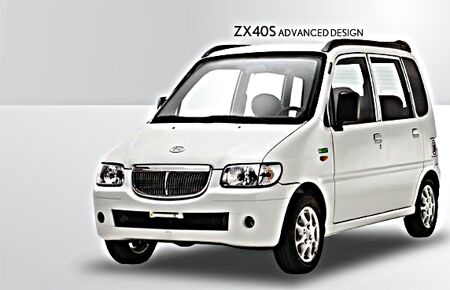
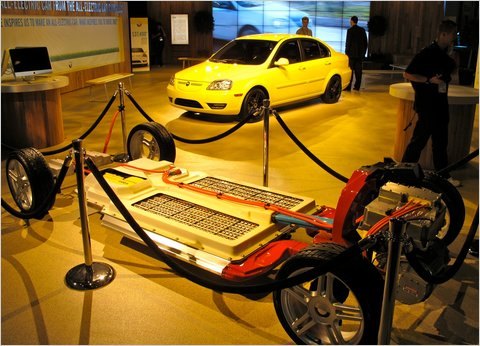

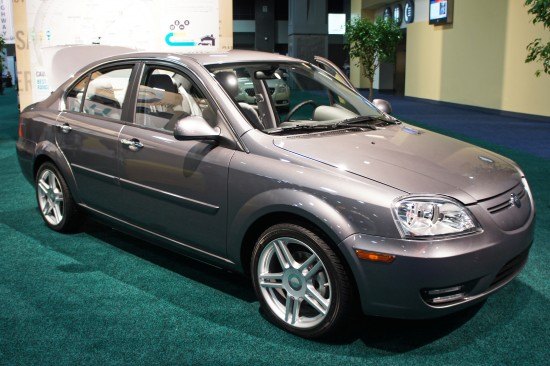
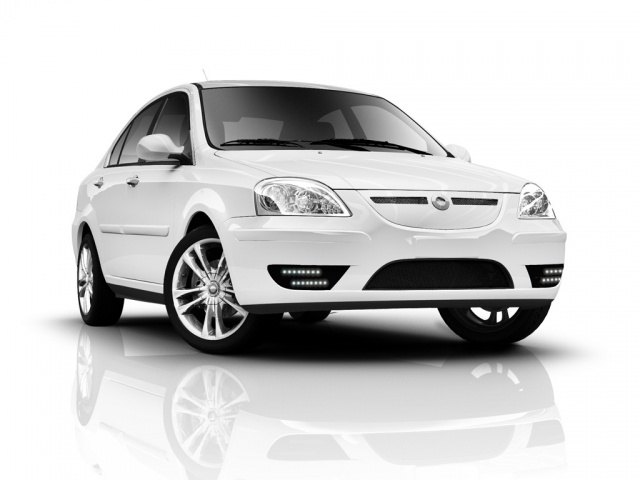
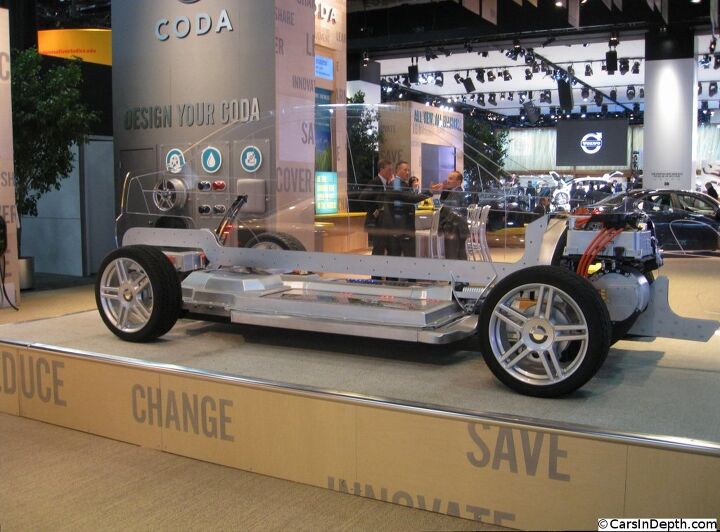
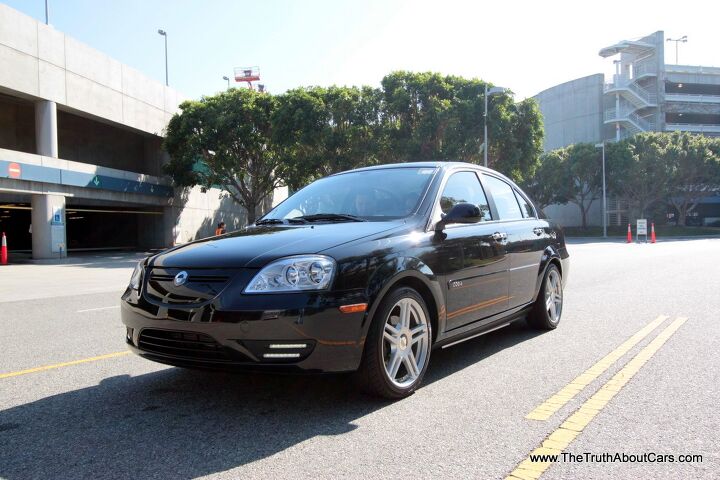

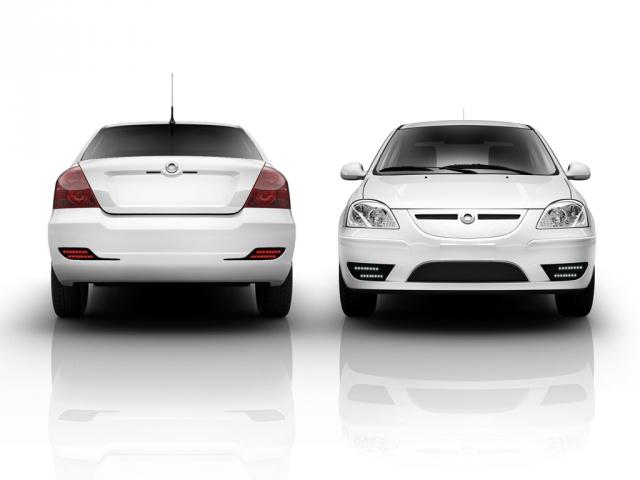
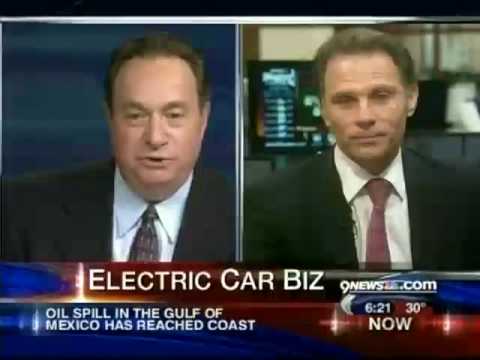















Recent Comments